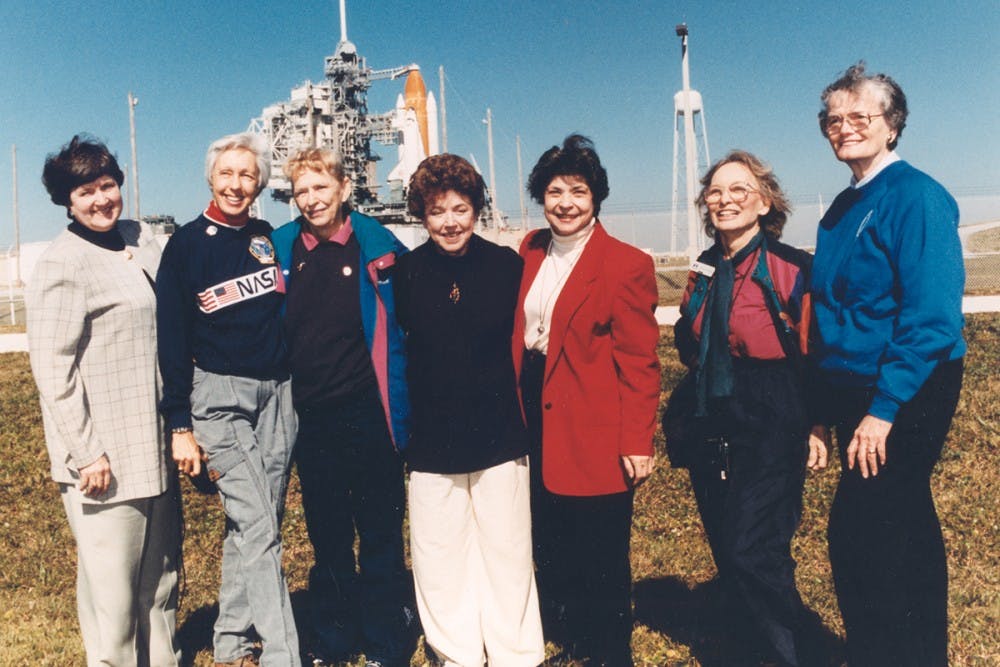As tensions in the Cold War increased in the late 1950s, the Space Race ramped up to new levels as the United States and the Soviet Union battled to reach new frontiers before the competition. The stories of this time period enchant and inspire — space is cool, and that’s just a fact. Rockets, planets and big star explosions make people forget that there’s no new land to discover on Earth, because there’s an eternity in the cosmos. When he landed on the moon, Neil Armstrong professed it as “one small step for man, one giant leap for mankind.” Notably sidelined in this quote? Half the world. Netflix’s “Mercury 13” seeks a more inclusive story of America’s journey into space, exploring the lives of 13 female pilots who wanted to explore the stars.
The current trend in both historical studies and documentary filmmaking is to tell the stories of those whose voices have been silenced — the forgotten warriors of equal rights, the social justice advocates erased by hegemonic myth-making and the “hidden figures” of the past, to borrow from a popular example of this new history. Media should welcome this development as a chance to tell both new stories and a more complete history, one not monopolized by wealthy, male political figures.
Coming off an Academy Award win for the documentary “Icarus,” which explored the world of doping in sports, particularly the extensive plots carried out by the Russian Olympic program, Netflix is clearly looking to distribute an increasing number of high-quality documentaries.
“Mercury 13” tells the compelling — if not entirely surprising — story of 13 American women who underwent similar testing as the seven men training to become the first astronauts. Despite scoring higher on many of the physiological and psychological tests, which were conducted by a third party organization unbeknownst to NASA, the women’s dreams of spaceflight were dashed and the program disbanded.
The rejection of these qualified women on the basis of their gender is a tale familiar to many. At one point in the film, pilot Jane Hart, a member of the training program and mother of nine, is asked how she could manage having children and being an astronaut. Which would come first? Substitute “astronaut” for literally any other profession — most women have heard something akin to this question, or have been forced to reckon with the perceived Sophie’s choice of motherhood or a successful career.
The documentary adopts a fairly standard format, complete with commentary by many of the Mercury 13 and their family members as well as archival footage and photos. It also includes particularly effective new footage of a woman in a visualization of a sensory deprivation tank — one of the tests the women underwent in which they performed consistently better than the men — producing sequences that give the film a more cerebral and imaginative tone when it embraces the otherworldly aspirations and bravery of the women.
“Mercury 13” tackles the struggles the 13 faced with an appreciative tone. At just under an hour and 20 minutes, the documentary briskly tells the story, presents its message and signs off with a hopeful flourish — Eileen Collins, the first woman to pilot and commander a space shuttle, recognized the Mercury 13 at a press conference before her launch in 1995.
“All these women have been my role models and my inspiration, and I couldn’t be here without them," Collins says after reading the names of all the women involved in the program. By looking into the future, “Mercury 13” provides a more optimistic ending for a story that could otherwise be viewed as disheartening. The Mercury 13 were not allowed to go to space, but in reaching for the stars, they inspired future generations to explore their dreams — untethered by the artificial constraints of gender created by a society ruled by fear of change.







